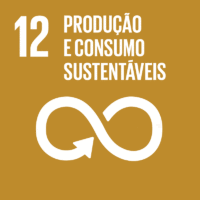Ciência_Iscte
Publicações
Descrição Detalhada da Publicação
European Academy of Management Conference, EURAM 2020
Ano (publicação definitiva)
2020
Língua
Inglês
País
Bélgica
Mais Informação
Web of Science®
Esta publicação não está indexada na Web of Science®
Scopus
Esta publicação não está indexada na Scopus
Google Scholar
Esta publicação não está indexada no Overton
Abstract/Resumo
This paper explores how customer-brand relationships are built during the interaction of users
with artificial intelligence (AI) enabled smart devices. Although the market of smart devices
and AI-enabled technology is still in its infancy, such interactions will develop to become an
important part of our daily activities. Such AI agents, will help consumers to perform their daily
activities, to decide on the products that may fit them better and even engage in thoughtful
discussions regarding consumer’s beliefs and values. Therefore, understanding what may drive
consumers to approach or avoid, maintain or terminate, enhance or not a relationship with an
AI agent is of particular important for the future. The Attachment-Aversion (AA) theory is used
to propose and test a conceptual model of how AI in smart devices may affect customer-brand
relationships. Results show that enriching the self has the highest effect on AA relationships
and on motivational strength to continue the relation. The paper concludes by discussing the
findings and highlighting the main theoretical and managerial contributions of the study.
Agradecimentos/Acknowledgements
--
Palavras-chave
Classificação Fields of Science and Technology
- Economia e Gestão - Ciências Sociais
Contribuições para os Objetivos do Desenvolvimento Sustentável das Nações Unidas
Com o objetivo de aumentar a investigação direcionada para o cumprimento dos Objetivos do Desenvolvimento Sustentável para 2030 das Nações Unidas, é disponibilizada no Ciência_Iscte a possibilidade de associação, quando aplicável, dos artigos científicos aos Objetivos do Desenvolvimento Sustentável. Estes são os Objetivos do Desenvolvimento Sustentável identificados pelo(s) autor(es) para esta publicação. Para uma informação detalhada dos Objetivos do Desenvolvimento Sustentável, clique aqui.

 English
English



